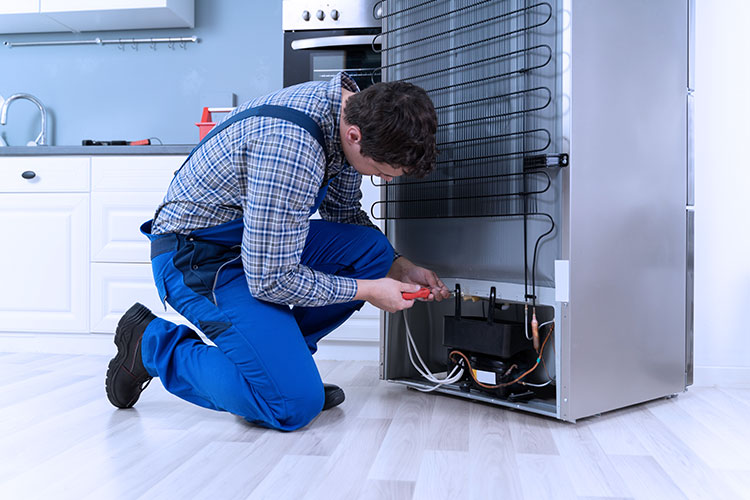A refrigerator is one of the most essential appliances in any household, operating 24/7 to keep food fresh and safe. Yet, many homeowners overlook the importance of proper maintenance—leading to reduced efficiency, higher energy bills, and premature breakdowns. The good news? With a few simple habits, you can significantly extend the life of your refrigerator.
Why Refrigerator Maintenance Matters
Keeping your refrigerator in optimal condition isn’t just about longevity. Regular upkeep helps:
- Lower your energy consumption
- Prevent food spoilage
- Avoid costly repairs or replacements
- Maintain consistent cooling performance
Neglecting maintenance, on the other hand, can lead to overworked components and eventual system failure.
Daily and Weekly Habits That Make a Difference
Keep It Clean Inside and Out
Spilled liquids and food debris not only cause odors but can also impact performance. Wipe down interior shelves weekly and ensure door seals are free from sticky residue. Externally, clean the surface and control panel to avoid grime buildup.
Don’t Overload the Fridge
While it may seem harmless, cramming your refrigerator can restrict airflow, forcing the motor to work harder. Leave space around vents and avoid blocking fans. Proper air circulation is vital for consistent cooling.
Monitor Temperature Settings
Ensure your fridge is set to the optimal temperature—usually between 37°F and 40°F (3°C to 4°C). The freezer should be around 0°F (-18°C). Avoid setting it too cold, as this strains the compressor unnecessarily.
Monthly and Seasonal Maintenance
Vacuum the Coils
Refrigerator condenser coils, typically located at the back or underneath, gather dust over time. Dirty coils make your fridge work harder, increasing energy use and wear. Vacuum or brush them off every 3–6 months for best results.
Check the Door Seals
Loose or cracked gaskets let cold air escape, compromising efficiency. Run a dollar bill through the closed door—if it slides out easily, your seals may need cleaning or replacing.
Defrost (If Needed)
While most modern fridges are frost-free, some models still require manual defrosting. Ice buildup can damage internal parts and reduce storage space. Follow your manufacturer’s instructions on defrosting.
Long-Term Practices to Maximize Efficiency
Keep It Away from Heat Sources
Placing your refrigerator next to ovens, dishwashers, or direct sunlight can cause it to overheat. Always allow a few inches of clearance between the fridge and heat-generating appliances.
Maintain Proper Clearance
Airflow around the appliance is crucial. Ensure the fridge isn’t pushed too close to the wall and has adequate ventilation to avoid overheating.
Replace Filters If Applicable
Some modern refrigerators come with air and water filters. Replacing them as per the manufacturer’s schedule keeps ice and water tasting fresh and prevents internal issues.
Conclusion: Small Steps, Big Savings
Extending your refrigerator’s lifespan isn’t rocket science—it’s about consistency. Routine maintenance not only delays the need for a new appliance but also saves you money on electricity and repairs. A little care goes a long way in keeping your kitchen running smoothly.
Areas We Service


